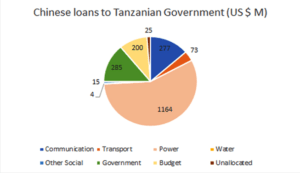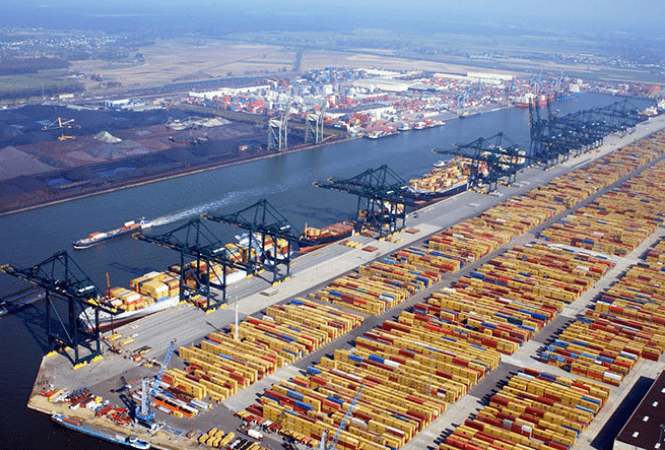Tanzania’s Bagamoyo Port Project charted a new trajectory in China and Tanzania relations. Despite several negotiations and diplomatic discussions, the port project did receive a green signal. The agreement for the Bagamoyo port project was signed in 2013 when various African organisations and citizens labelled the agreement as a “killer Chinese loan” and demanded that Jakaya Kikwete, former President of Tanzania reject the offer. Despite this, the offer was accepted by the then President. However, in January 2016, John Magufuli formed his government and immediately announced the suspension of the project. The president forthwith said that the former president negotiated the project poorly and started the project on conditions that were equivalent to selling Tanzania to China.
With series of closed-door negotiations and unknown reasons, work on the project was resumed in 2018 but halted indefinitely in 2019. Magufuli’s government suspended the Chinese funding of the $10 billion Bagamoyo port project on the grounds of being exploitative and awkward. After releasing these abrasive statements, the Tanzanian President set the precedence to abrogate abusive conditions.
Renegotiation with China Merchants Holdings International (CMHI) was initiated on 21 October 2019, wherein the President released its five-point agenda which included shifting of the 99-year lease to 33 years. This lease was an undertaking to allow China to rent the port, while limiting the jurisdiction of the Tanzanian government, especially in future potential investments. The new condition also entailed the removal of tax holidays and special statuses earlier offered. The removal of special status will result in the procurement of electricity and water by the China Merchants at the market rate. Along with this, CMHI further received prohibitions to run any other businesses on the port. Another key revision was the retention of the right of developing other ports by the Tanzanian government. Adding to the chaos, CMHI released a public statement stating non receival of any document from Mr. Kakoko and the parties had already agreed on the 33 year lease period.

In April 2020, non-state news agency published that the Tanzanian President had cancelled the project to which Cheng Wang, who is a civil servant at The Ministry of Commerce of the People’s Republic of China (MOFCOM) and is currently the commercial attaché at the Chinese embassy in Muscat, Oman provided another perspective via a thread of eleven tweets. Wang stated that the $10 billion is the final investment amount invested by various investors and operators and hence claims that there was never a $10 billion deal on the port project from China alone. The Bagamoyo port project is a tri government project between China Merchant Group & State General Reserve Fund (SGRF), Oman and Tanzania. According to him, SGRF had no less than 10% share in the project, and hence, the company was required to make investment equivalent to its share. Though he highlighted no objections with the cancellation of the project, but the amount of misinformation and manipulation associated with the project was ridiculous.
In addition, amidst the COVID-19 pandemic, several African students have been facing discrimination and harassment in China. The situation intensified as there were protests held by the local communities, against the presence of Chinese labour in Africa, expressing their anger and discontent. The protestors demanded to cut off all economic links with China, due to the realization that Chinese involvement in their respective countries was bringing more harm than good. Although the Chinese embassy in Tanzania refused to accept these allegations of discrimination in a tweet where Chinese Foreign Ministry Spokesperson Zhao Lijian says “China treats all foreign nationals equally, rejects differential treatment & has zero-tolerance for discrimination”.
These ongoing tensions between China and Africa are bound to have associated impacts and could have influenced the Tanzanian president to take an epochal decision. The Tanzanian port project, promised to be the largest in Eastern Africa, was a key component in China’s Belt and Road Initiative (BRI). Like other least-developing nations who were associated with BRI projects, Tanzania’s government feared that the Bagamoyo port project would bring no profits in the country. The cancellation of the project had an adverse impact on China’s credibility and jeopardized the future of BRI in East Africa. One of the major drawbacks of the Chinese investment has been that China does not believe in transferring the technological know-how onto the target country, rather it carries out independent execution of infrastructural projects.
As indicated by the above pie chart, the majority of the loans offered by the Chinese government to Tanzania are directed towards the power sector. The loan of the power sector was sourced from the Export-Import Bank of China in 2012 for the construction of a gas pipeline from Mnazi Bay to Dar es Salaam. In 2016, India extended a $92 million Line of Credit (LoC) for rehabilitation and improvement of Zanzibar’s water supply system to Tanzania and strengthen its developmental ties. With a cursory comparison of the two developmental aids, one can infer that China is one of the major sources of borrowing for the African nation. Recent reports from the Wall Street Journal revealed that the African debt owed to China has piled up to a whopping $143 billion over the past two decades. Considering the repercussions of the non-repayment of Chinese loans, this piece of news does not bode well for Tanzania, and the continuity of the port project would have worsened the debt.
Despite these experiences, the utility of the projects implemented in the African continent by the Chinese government, cannot be denied. China and Tanzania’s economic and political relations have grown exponentially. Earlier last year, The Minister of State in the Prime Minister’s Office responsible for Investment, Angellah Kairuki acknowledged the presence of Chinese investment in Tanzania. She stated that China’s role in helping Tanzania towards attaining a middle-income country status by the year 2025 is of utmost importance. There were reports of China and Tanzania supporting each other amidst the ongoing pandemic. So, the pertinent question remains, whether such projects are relevant, if they do not seem to bring any tangible benefits to the target country and whether they justify the struggle and exploitation accompanying them. Investments made in an infrastructure project should ideally provide a return covering at least the outlay. If it fails to do so, then the problem of upholding debt obligations arises. The Tanzanian president’s firm diligence has set an example for other African leaders to bear that the investments made muat be in accordance with the economic and political needs and such kinds of exploitative projects should not be agreed upon.



